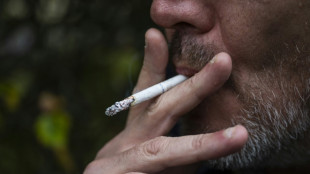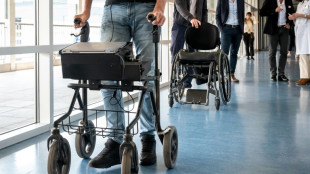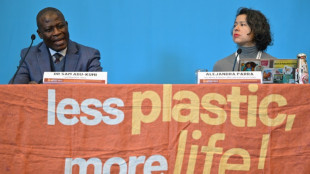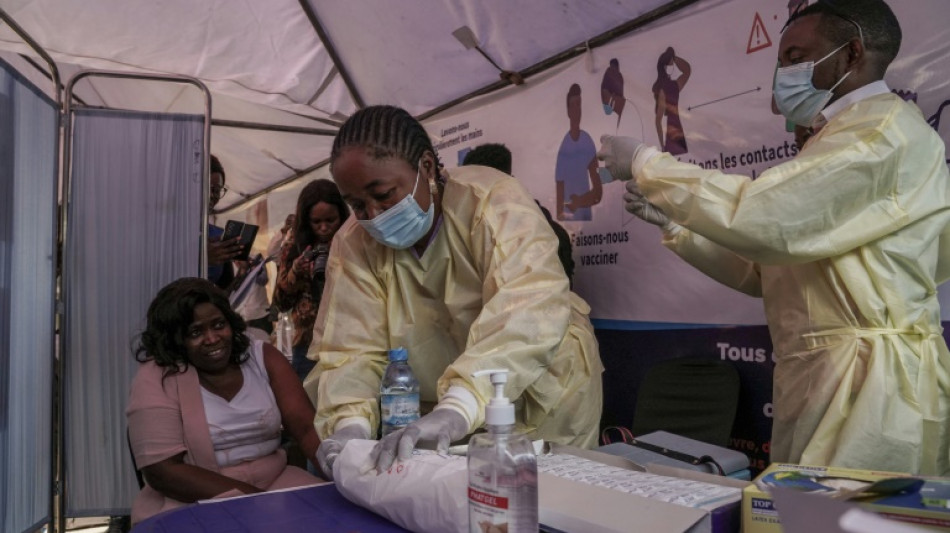
-
 Dutch F1 Grand Prix to end in 2026: organisers
Dutch F1 Grand Prix to end in 2026: organisers
-
Gunman held after failed attack on Sikh leader in India

-
 Pakistan recall Babar Azam for South Africa tour, Sajid Khan out
Pakistan recall Babar Azam for South Africa tour, Sajid Khan out
-
Seoul stocks sink amid S. Korea drama as Asian markets mixed

-
 French appeals court to rule in Polanski defamation case
French appeals court to rule in Polanski defamation case
-
Death toll rises to 29 in southern Thailand floods

-
 South Korean opposition move to impeach president after martial law bid
South Korean opposition move to impeach president after martial law bid
-
Trump's vows of quick peace fall flat on Ukraine frontlines

-
 Soldiers vs office chairs: South Korea's martial law standoff
Soldiers vs office chairs: South Korea's martial law standoff
-
Japan's Premier League pioneer Inamoto retires aged 45

-
 Second major Myanmar rebel group calls for talks with junta
Second major Myanmar rebel group calls for talks with junta
-
FIFA to reveal Club World Cup draw amid apathy, legal threats

-
 Taiwan's Lai arrives in Tuvalu to shore up Pacific allies
Taiwan's Lai arrives in Tuvalu to shore up Pacific allies
-
South Korean president pressed to step down over martial law bid
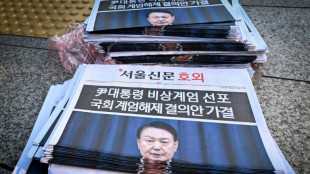
-
 Huge Vietnam fraud case raises questions over banking system
Huge Vietnam fraud case raises questions over banking system
-
Ghana thrusts economy into limelight in tight race for president

-
 Philippines says China Coast Guard fired water cannon, 'sideswiped' govt vessel
Philippines says China Coast Guard fired water cannon, 'sideswiped' govt vessel
-
Vietnam pushes electric motorbikes as pollution becomes 'unbearable'

-
 Seoul stocks sink amid S. Korea drama as Asian markets struggle
Seoul stocks sink amid S. Korea drama as Asian markets struggle
-
Hong Kong mega development plan to devour villages, wetlands
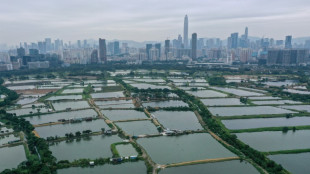
-
 French government risks falling in no-confidence vote
French government risks falling in no-confidence vote
-
Stokes fit as England name unchanged team for 2nd New Zealand Test

-
 Djokovic to begin bid for 25th Grand Slam crown in Brisbane
Djokovic to begin bid for 25th Grand Slam crown in Brisbane
-
Life has 'disappeared': Mexican city reeling from cartel infighting

-
 IXOPAY and Aperia Compliance Merge to Extend Advanced Payment Data Security to Merchant Acquirers and Merchants of All Sizes, Worldwide
IXOPAY and Aperia Compliance Merge to Extend Advanced Payment Data Security to Merchant Acquirers and Merchants of All Sizes, Worldwide
-
S.Korea political upheaval shows global democracy's fragility - and resilience

-
 Van Nistelrooy off to winning start at Leicester, Palace beat Ipswich
Van Nistelrooy off to winning start at Leicester, Palace beat Ipswich
-
Global stocks end mostly up with DAX crossing 20,000 for 1st time

-
 Georgia's ombudsman accuses police of torturing pro-EU protesters
Georgia's ombudsman accuses police of torturing pro-EU protesters
-
Norway, Sweden win big to reach Women's Euro 2025

-
 Partner of ex-Abercrombie & Fitch CEO pleads not guilty to sex trafficking
Partner of ex-Abercrombie & Fitch CEO pleads not guilty to sex trafficking
-
Leverkusen eliminate Bayern from German Cup after Neuer sees first red

-
 Syria rebels 'at gates' of central city Hama
Syria rebels 'at gates' of central city Hama
-
Amazon launches AI models to challenge rivals

-
 Bolivian ex-president, who fled to US, sentenced to six years prison
Bolivian ex-president, who fled to US, sentenced to six years prison
-
Bayern's Neuer sent off for first time in 866-game career

-
 Namibia elects its first woman president
Namibia elects its first woman president
-
Scottish artist Jasleen Kaur wins 2024 Turner Prize

-
 Barca hit five as they return to winning ways at Mallorca
Barca hit five as they return to winning ways at Mallorca
-
S. Korea president says will lift martial law

-
 Olympic champion Evenepoel breaks hand, shoulder in postal van collision
Olympic champion Evenepoel breaks hand, shoulder in postal van collision
-
Syria rebels advance on central city

-
 S. Korea's President Yoon, embattled conservative
S. Korea's President Yoon, embattled conservative
-
UK museum in talks with Greece over 'long-term' deal for Parthenon Marbles

-
 What we know about South Korea's martial law
What we know about South Korea's martial law
-
Biden announces $1 bn for Africa during maiden trip

-
 Retailers point to solid US sales over holiday weekend
Retailers point to solid US sales over holiday weekend
-
Europe-loving Blinken on last trip to NATO before Trump handover

-
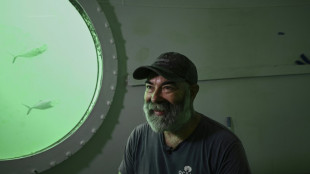 Seeking a new way of life under the sea - and a world record
Seeking a new way of life under the sea - and a world record
-
Defying headwinds, German stocks hit milestone


WHO members' pandemic accord talks to spill into 2025
Talks between WHO member states on a landmark global accord on handling future pandemics will roll into 2025 after countries decided Monday there were too many gaps to seal a deal this year.
The key faultline in the negotiations lies between Western nations with major pharmaceutical industry sectors, and poorer countries who do not want to be sidelined when the next pandemic strikes.
The emergence of a new strain of mpox, the deadly Marburg virus outbreak in Rwanda and the spread of H5N1 bird flu in recent months have given the talks process a timely jolt.
The negotiations, which kicked off in February 2022, are being held at the World Health Organization's headquarters in Geneva.
The WHO's 194 member states "think they still have work to do", talks co-chair Anne-Claire Amprou told a press conference.
"Today member states agreed we need to conclude the agreement as soon as possible, and continue negotiations into 2025, with the goal of concluding the agreement by the next World Health Assembly scheduled in May.
"We are moving in the right direction," she insisted.
In December 2021, fearing a repeat of the devastation wrought by Covid-19 -- which killed millions of people, crippled health systems and crashed economies -- countries decided to draft a new accord on pandemic prevention, preparedness and response.
While much of the draft text has been agreed, disputes remain over some key provisions, notably over sharing access to pathogens with pandemic potential -- and then equitably sharing the benefits derived from them, such as vaccines, tests and treatments.
Talks are also stuck on surveillance and prevention, as well as technology transfer to poorer states.
- 'Still a chasm' -
In June at the annual World Health Assembly -- the WHO's top decision-making body -- countries gave themselves until the next assembly in May 2025 to conclude and adopt the agreement -- and to get it done by the end of the year if possible.
To finish this year, countries would have had to call a special session of the assembly in December -- with Monday the last possible day to do so.
However, negotiators accepted they were still far from ready.
Countries will have a further week of talks next month and decide on December 6 whether they think an agreement can be sealed before May.
On the horizon, the return to the US presidency in January of Donald Trump -- no friend of the WHO -- also risks shaking up the process.
The two-week, 12th round of negotiations began on November 4, but little progress has been achieved so far on bridging the remaining gaps.
"In terms of the content, there's still a chasm. It's important to get the content right," Thiru Balasubramaniam, the Knowledge Ecology International NGO's Geneva representative, told AFP.
He said finding some give-and-take on ramping up surveillance for emerging pathogen threats, and equally on sharing pathogens and pandemic-fighting products, could break the logjam.
"If member states can thread the needle on those two difficult pieces of the puzzle, then the rest may follow," he said.
- 'Biggest fear' -
Talks co-chair Precious Matsoso said that all countries want to be better prepared and prevent the next disaster from happening.
"We are actually closer on some issues than we think... a clear opportunity exists for a middle ground," she said.
"Our biggest fear though is that when the next pandemic happens, it will be more severe than what we experienced with Covid-19."
K.M. Gopakumar, senior researcher with the Third World Network, said countries were discussing the conditions under which vaccines, tests and treatments would be shared for distribution among poorer countries, and what percentage of production.`
"Developed countries are saying they will give only in the case of a pandemic. But not for, say, a public health emergency of international concern, or even regular outbreak of say Ebola," he told AFP.
"As per this approach, they give only when it becomes big. That is exactly what happened with mpox. Only when there was a public health emergency was there a donation of vaccines. That is too late."
C.Kovalenko--BTB

